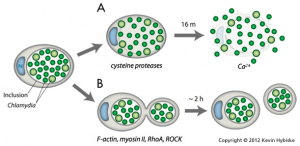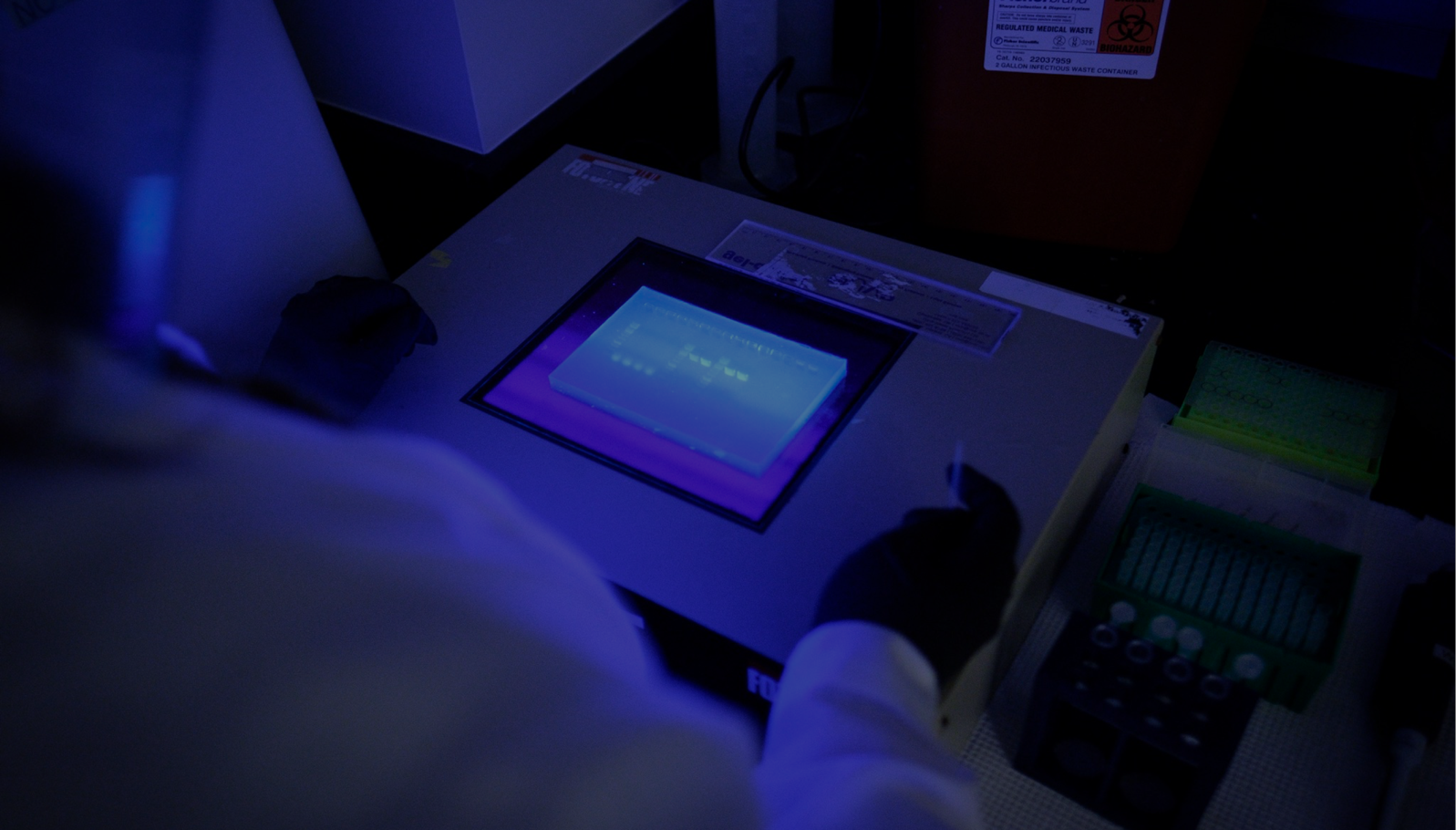Overview
The Hybiske laboratory is broadly interested in the interactions between intracellular pathogens and host cells.
The lab is particularly interested in the pathways used by intracellular organisms to exit host cells. This research encompasses the underlying molecular mechanisms of these processes and the illumination of how these strategies facilitate unique interactions with the host immune system, most notably for immune evasion.
A major research focus in the lab is to decipher the mechanisms by which the intracellular pathogens Chlamydia and malaria manipulate cellular function in order to exi t host cells and cause infectious disease. Collectively, diseases caused by Chlamydia and malaria are among the most devastating and widespread to plague mankind; effective intervention strategies are sorely lacking. And remarkably, these two disparate pathogens have coevolved similar mechanisms for escaping their respective host cells and disseminating within human hosts.
t host cells and cause infectious disease. Collectively, diseases caused by Chlamydia and malaria are among the most devastating and widespread to plague mankind; effective intervention strategies are sorely lacking. And remarkably, these two disparate pathogens have coevolved similar mechanisms for escaping their respective host cells and disseminating within human hosts.
Our ultimate goal is to leverage a thorough understanding of these pathogenic mechanisms as a new, unexplored therapeutic platform.
Principal investigator
Diseases we study



